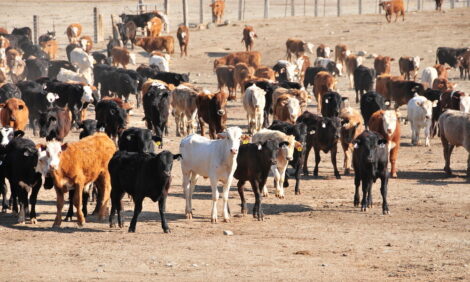



EU countries seek to lower livestock emission limits
EU parliament preparing to negotiate tighter limits for farmsEuropean Union countries agreed on Thursday to try to reduce the number of farms covered by proposed rules to cut pollution and greenhouse gas emissions from livestock, despite criticism from some member states, Reuters reported.
Livestock emissions of methane, a potent greenhouse gas, in the EU have barely fallen for more than a decade.
To address the problem, member countries and the European Parliament are preparing to negotiate tighter EU limits for farms and factories on waste disposal and other polluting gases such as sulphur dioxide and nitrogen oxides.
The European Commission, which drafts EU laws, last year proposed that all cattle, pig and poultry farms with over 150 livestock units face the limits - around 184,000 of Europe's largest farms.
That would be the first time cattle, which are the biggest source of methane in the EU agricultural sector, were included and would increase the number of poultry and pig farms covered from the current 20,000.
The European Parliament will confirm its negotiating position in the coming months.
But environment ministers from EU member states on Thursday said cattle and pig farms should only be covered if they have at least 350 livestock units - more than doubling the Commission's threshold - and 280 livestock units for poultry farms.
Countries including Bulgaria, Germany, Italy and Poland pushed for fewer farms to be included, saying the Commission proposal was not realistic and burdensome for farmers.
Denmark, Finland, Ireland, Luxembourg and the Netherlands accepted the position but complained about the weakening.
EU countries have "reduced the environmental ambition and the potential pollutant emission reductions considerably," Finland's State Secretary for Environment Terhi Lehtonen said.
The Commission's proposal, if adopted, would ensure the new limits cover farms responsible for around 60% of EU ammonia emissions livestock and 43% of methane.
Policies to curb the climate impact of farming have become a political flashpoint in EU countries including the Netherlands, where a farmers' party emerged as the big winner in provincial electionson Wednesday, riding a wave of protests against the government's environmental policies.



